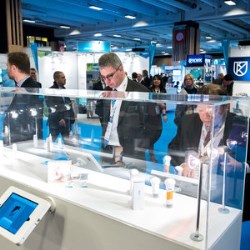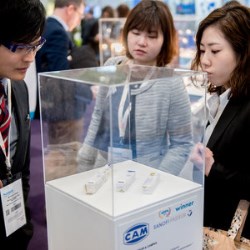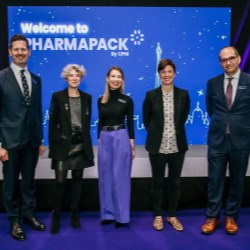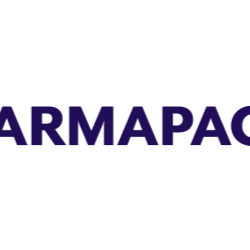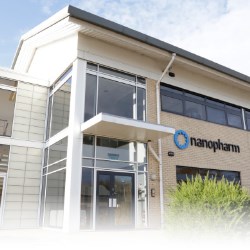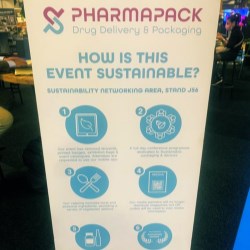Public
PharmaPack Europe Events
PharmaPack Europe Locations
PharmaPack Europe News
Pharmapack Europe Videos
If this is your company, CONTACT US to activate Packbase™ software to build your portal.
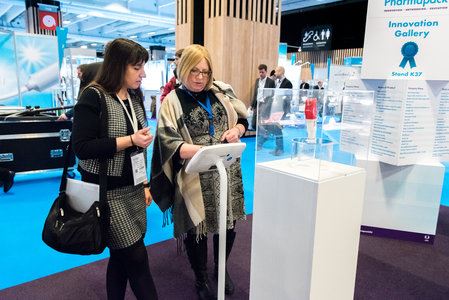

Pharmapack Europe (February 6-7th, Paris Expo Porte de Versailles, Paris) has released a ‘European drug delivery and packaging’ report, ahead of the event’s opening which highlights, major challenges and opportunities for the industry in the year ahead.
The report forecasts there to be increased innovation by smaller companies across Europe, as industry leaders and executives prepare to meet at Europe’s biggest pharma packaging and drug delivery event. The primary drivers for the rise in innovation were attributed to an overall increase in biologics, which is bringing investment into newer drug delivery systems such as auto injectors, and the opening up of digital technologies across the internet of medical things (IoMT) and connected devices.
New report highlights Germany, France and Switzerland as tier-one nations for ‘drug delivery innovation’, and warns the challenge will be to scale-up and approve promising prototypes
In Europe, emphasised by Pharmapack’s own Innovation Gallery, a large number of smaller and highly agile firms are developing these more specialised and consumer friendly technologies. However, many of the report’s experts tempered excitement with the acknowledgment that there still remains a big scale-up gap between promising prototypes and commercial products. As a result, what we will likely see is the larger drug delivery manufacturers and pharma companies scouring these new innovation hubs for licensing partners and acquisitions. Ultimately, these new combinations of small and large companies should help accelerate and enable ground-breaking technologies to reach the patient without becoming slowed by scale-up challenges or regulatory approvals.
Drug delivery innovation rankings
The report also included the first ever ‘drug delivery innovation’ rankings, with a clear tier-one of European nations emerging – with Germany heading the rankings narrowly followed by France, Switzerland, and the United Kingdom. Globally the rankings were headed by Japan and the United States.
Another key market trend are new delivery technologies to help patients self-administer drugs – such as pre-filled, needle-free delivery – and smart applications that help the patients monitor dosing and time of delivery. It is a particularly significant trend, as healthcare prices continue to rise globally, and delivery mechanisms remove the need for supervision of a healthcare professional. This will help reduce the overall cost burden in public and private health economies.
Commenting in the report Andy Fry, Founder of Team Consulting said “The balance between sales of ‘conventional’ and ‘biologic’ drugs have shifted progressively over the past few years. Given that virtually all biologics are parenterally delivered, the majority of these self-administered, the strong demand for wearable delivery devices, autoinjectors and pens, as well as pre-filled syringes and dual chamber products, is expected to continue in 2019.”
Fiona Barry, associate editor of PharmSource, a GlobalData Product, warns the impending exit of the United Kingdom from the European Union could affect the UK’s dominant position as a manufacturer of advanced therapies. Within Europe, a disproportionate number of these therapies are produced in the UK, but this could shift to Germany, the Netherlands, and Belgium post-Brexit, she said. Reflecting these trends, Fabien Roy, Counsel at Hogan Lovells International LLP, will chair a panel discussion at Pharmapack Europe to discuss the practical implications of Brexit for pharmaceutical and medical device companies. In packaging, serialisation is now coming into effect and experts highlighted concerns that, despite the long run-up, many small companies may not be well prepared for the full implementation of regulations.
The Pharmapack Europe report concludes the combined trends of the drug delivery and packaging sector over the next few years demonstrate a clear desire from regulators, developers and patients to improve the overall patient experience and centralize treatment options around the patient.
In Europe, this aspiration, coupled with a growth in biologics manufacturing and a new age of innovation is redefining the art of the possible and reimagining delivery and adherence options. In fact, we would predict that a number of new innovation hubs will emerge, with a more diverse range of companies. The net results of this is likely to be an increase in licensing deals between small and large firms, as well as numerous acquisitions and co-development deals.
Silvia Forroova, Event Director Pharmapack, commented: “Our report’s findings closely mirror the agenda we have developed, and the conference will run across three broad themes – ‘patient adherence and usability’, ‘new packaging materials and drug delivery systems’, and ‘sustainability’. Our sessions on patient-centricity, smart devices and packaging, as well as connected applications and auto-injectors are generating particular excitement.”
To take just a snapshot of trends emerging at the event – Pharmapack Europe will explore the commercial drivers behind ‘the future of Smart Packaging and Design’ with analysis provided by Dr. Alex Cole of the UK’s Centre for Process Innovation. Dr. David Braun, Global Head of Device solutions at Merck – one of the experts to contribute in the report – will deliver a session on the ‘real value of connected devices’. In patient centricity, Giana Carli Lorenzini of Lund University will explore the ‘potential challenges to design and innovation’, and how these can be overcome.
Forroova added: "We have witnessed first-hand more pharma and medical device companies specifically coming to Pharmapack Europe to explore what the next wave of clinical developments are, and to discover new innovations. So, while the last two years have been a golden period for FDA approvals, with record numbers achieved, the next five years are expected to be the golden period of innovation for drug delivery and packaging across Europe.
What is most exciting about all these changes, when looked at collectively, is that there is an increasing diversification of the types of companies, types of professionals, and collaborations in the industry driving innovation forward. Other industries have clearly shown that when an open-access approach to new technologies is taken, transformational changes are often quick to follow. It really is an exciting time to be hosting the industry here in Paris.”
The conference agenda also features sessions on serialization, as well as sustainability, QbD, combination products and long-acting injectables. The final day of the event will see an in-depth exploration of biosimilars and the outlook for innovative biologicals, and crucially, what the implications are for packaging and dose delivery. For the full schedule please visit: www.pharmapackeurope.com/agenda








